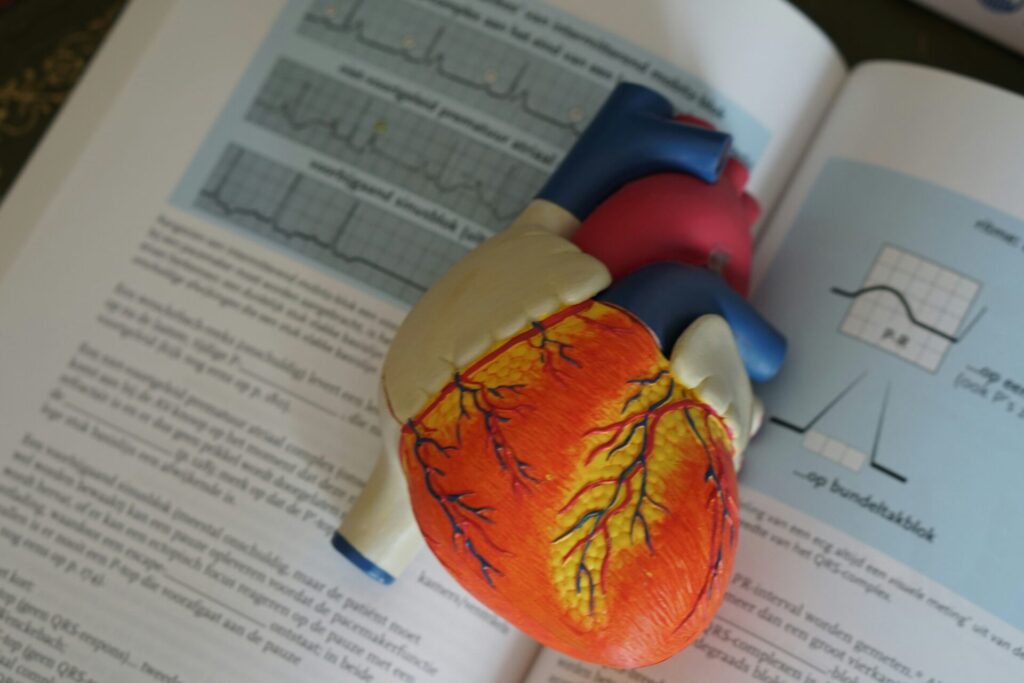GCSE science can feel overwhelming, with its mix of biology, chemistry, physics, and practical elements. But with the right approach, students can build their confidence, perform well in exams, and even enjoy the process of learning. This guide is packed with helpful strategies, from understanding what GCSE science covers to mastering revision techniques designed for success.
What Is GCSE Science and What Does It Cover?
GCSE science is a core subject in the UK curriculum, offering students the foundation they need to understand scientific principles and apply them to real-world scenarios. Depending on their school and exam board, students may take combined science, leading to two GCSEs, or separate sciences (biology, chemistry, and physics), resulting in three GCSEs.
The subject content covers a wide range of topics. Biology focuses on living organisms, ecosystems, and health. Chemistry explores matter, reactions, and the environment. Physics deals with forces, energy, waves, and the universe. Alongside theoretical learning, students must complete required practicals to develop hands-on skills and grasp key scientific methods.
Each exam board, such as AQA, OCR, or Edexcel, has slight variations in content and emphasis. It’s essential to know the specific syllabus you’re studying. Reviewing your exam board’s specification is the first step toward effective GCSE science revision.
How to Approach GCSE Science Revision
Revision isn’t just about cramming information; it’s about smart preparation and strategies that work for you. Starting with a clear plan and the right mindset will go a long way in helping you feel prepared and confident. Below are some key methods to organise your GCSE science revision.
Break Down Big Topics into Manageable Chunks
Biology, Chemistry, and Physics are packed with detail—trying to revise them all at once is overwhelming. Break topics into exam-board-specific areas. For example, split Biology into cell biology, inheritance, and ecology; Chemistry into bonding, electrolysis, and rates of reaction.
Use a syllabus-based checklist from your school or science GCSE revision books and turn each sub-topic into its own mini goal. This makes it easier to revise progressively and track what’s been mastered. This method also supports spaced repetition, a proven revision strategy for GCSE students aiming for long-term retention without last-minute panic.
Use Past Papers to Test Yourself
Past papers are one of the most effective tools for GCSE science revision. Completing them under timed conditions helps you become familiar with the exam format, the types of questions asked in Biology, Chemistry, and Physics, and how marks are awarded, especially for data-handling and extended-response questions. Review examiner reports for insights into common student mistakes and mark scheme expectations.Schedule regular sessions to go over recent and older papers, highlighting patterns in your errors. This is one of the most targeted revision techniques for GCSE success.
Get Comfortable with ‘Explain’ and ‘Evaluate’ Questions
One of the most common ways students lose marks in GCSE Science is by misunderstanding how to answer ‘explain’ and ‘evaluate’ questions. These aren’t just about recalling facts — they test your ability to think scientifically and apply your knowledge clearly and logically.
In Biology, for example, you might see:
“Explain how the structure of a leaf is adapted for photosynthesis.”
To get full marks, you’d need to go beyond listing features — you’d need to link each feature (like “thin for a short diffusion path”) to its specific function.
In Chemistry:
“Evaluate the method used to investigate the rate of a chemical reaction.”
You’d be expected to comment on the accuracy, reliability, and possible improvements, not just say it “was a good method.”
And in Physics:
“Explain why increasing the length of wire increases resistance.”
You’d need to mention particle collisions, energy loss, and how that relates to current flow — not just state the trend.
In short, the best way to revise for GCSE Science isn’t just learning the content — it’s learning how to use it in writing. Prioritising these questions is one of the most effective revision strategies for GCSE success.
Mix Up Your Revision Methods
We’ve already provided some targeted methods to boost GCSE Science attainment, but you should avoid totally relying on any one routine. The best way to revise for GCSE is by using a mix of techniques. Summarise a chemistry topic using a mind map, then test yourself with flashcards. Watch a physics explainer video, then sketch out the key formulas and diagrams. Use self-quizzing tools and online platforms that provide active recall exercises tailored to science GCSE revision.
Try teaching a family member the difference between endothermic and exothermic reactions or the role of enzymes in digestion—teaching helps consolidate understanding. Using diverse methods isn’t just about keeping things interesting; it engages different parts of your brain, helping concepts stick.
How do I choose?
Different methods work better for different types of content, so let the topic guide your choice. For example, use mind maps for processes and big-picture connections (like the carbon cycle or energy stores), flashcards for memorising definitions and equations, and videos or simulations for tricky visual topics like electric circuits or particle theory.
If a topic feels confusing, try explaining it out loud—that reveals gaps in understanding quickly. If it feels dull, switch to a more active technique like past paper questions or a timed quiz. The key is adapting your approach based on what you need to understand, not just what feels easy.
Focus on Key Terms and Definitions
Make subject-specific glossaries or use flashcards from trusted science GCSE revision books. Draw annotated diagrams and link each term to an image or process. Use mnemonics where useful—especially for biology processes or the reactivity series in chemistry. Knowing your definitions cold is one of the fastest ways to boost scores in one-mark and multi-mark questions.
And remember, scientific precision matters. Terms like “diffusion”, “osmosis”, and “active transport” are often grouped in the same topics and may sound alike, but each has a distinct meaning — and confusing them can cost you marks. GCSE questions are designed to test whether you truly understand the differences between these terms, not just that you’ve heard of them.
To tackle this, create flashcards that not only define each word but include side-by-side comparisons or “What’s the difference?” prompts. Use diagrams to visualise how each process works, and annotate them to highlight what makes each unique. This comparison-based revision is essential for mastering similar terms under exam pressure.
Don’t Neglect Required Practicals
A significant chunk of the marks in GCSE science come from understanding and applying practicals. You don’t need to memorise every method word-for-word, but you must understand variables, fair testing, control groups, and how to analyse results.
For example, you should be able to describe how to test for starch in a leaf or explain how to measure the pH change in a neutralisation reaction. Practise writing answers that use the correct terminology and explain the why behind each step. Reviewing diagrams and data tables from practicals is one of the most overlooked but high-impact revision strategies for GCSE.
More Advanced GCSE Science Revision Tips
If you’re aiming for top grades, you’ll need revision techniques that go beyond the basics. Here are advanced methods to help you master GCSE science.
Prioritise Required Practical Activities
Required practicals don’t just improve your understanding; they’re also a guaranteed part of the exam. Focus on learning the steps, variables, and measurements involved. Supplement your knowledge by watching videos of experiments you may not have completed at school.
Work on translating practical results into graphs or written analyses. Practicing these skills ensures you’re ready to handle data-based questions.
Master the Maths Skills
Maths skills are increasingly important in GCSE science exams. You’ll need to use equations, interpret graphs, calculate percentages, and more. Make sure you’re confident with these skills, as they’re worth significant marks.
Create flashcards for formulas and practice applying them. Work through example calculations until you feel confident, and don’t hesitate to seek help with areas you find difficult.
Use Dual Coding to Learn Complex Processes
Dual coding combines text and visuals to enhance understanding and memory retention. The goal isn’t just to make things look nice—it’s to help your brain link written explanations with clear visual representations. For example, draw a labelled diagram of the heart and annotate it step-by-step as you describe how blood flows through each chamber. That’s classic dual coding: combining an image with linked, meaningful text.
To use this technique well, avoid overloading your visuals. Stick to simple sketches, flowcharts, or timelines, and add brief captions or keywords that explain what’s happening. Colour-code parts of a process—like the stages of photosynthesis or the steps of a chemical reaction—and match each colour to a written explanation. This approach helps you remember not just what happens, but how and why it happens, especially in processes that require sequential understanding.
Focus on Command Words
Exam questions often include command words like “describe,” “explain,” or “evaluate.” Misinterpreting these can lead to lower marks, even if your answer is factually correct. Learn the meaning of each word and how to tailor your responses accordingly.
Practice writing answers that align with specific commands. For example, “evaluate” requires you to weigh pros and cons and offer a considered judgment, while “describe” needs you to recount details without analysis.
Mark schemes show how examiners award points for different styles of response. You’ll see exactly what earns full marks for an “explain” question versus a “describe” one, and what’s expected in an “evaluate” answer. Practising this way helps you tailor your writing style to each command. For example, “evaluate” requires you to weigh pros and cons and offer a judgment, while “describe” just needs accurate details with no interpretation. Understanding these subtle differences is key to turning decent answers into full-mark ones.
Create Flashcards that Work Hard for You
Flashcards work best when used to reinforce discrete, high-frequency facts that need to be instantly retrievable.
1. Vocabulary and Terminology
Flashcards shine here. Science is full of terms you need to know cold—diffusion, activation energy, allele, isotope. Flashcards help you drill that precision, especially when paired with diagrams or real examples.
2. Units and Conversions
A card for each unit (e.g. “Joules = ?”) or conversions like “kJ to J” or “cm³ to m³”. These are things you need to recall fast in Physics or Chemistry questions—not work out from scratch.
3. Processes in Sequence
Flashcards are great for ordering steps—photosynthesis, respiration, the carbon cycle, the nervous response pathway. Put the steps on separate cards and shuffle them to test your understanding.
Join the Immerse Education 2025 Essay Competition
Follow the instructions to write and submit your best essay for a chance to be awarded a 100% scholarship.

Building a Science GCSE Revision Strategy That Works
Every student is different, which means there’s no one-size-fits-all approach to GCSE science revision. The key to success lies in creating a strategy that suits your learning style, schedule, and goals.
Start by assessing your strengths and weaknesses. Spend more time on challenging topics but don’t neglect areas you’re confident in. Balance is essential. Use tools like revision timetables to allocate focused sessions for biology, chemistry, and physics.
Evaluate your progress weekly. What’s working for you? What isn’t? Adjust your techniques as needed. For instance, if a topic isn’t sticking with written notes, try watching an explanatory video or discussing it with a classmate.
Finally, remember to take breaks. Revision can be intense, but overloading yourself can lead to burnout. Include time to relax, exercise, and step away from your studies so you return refreshed and motivated.
With dedication, strategic planning, and the right techniques, GCSE science revision doesn’t have to be overwhelming. By making your approach personal and adaptive, you’ll be well-prepared to tackle exams and achieve the results you’re striving for.
Further reading: GCSE grading system

























